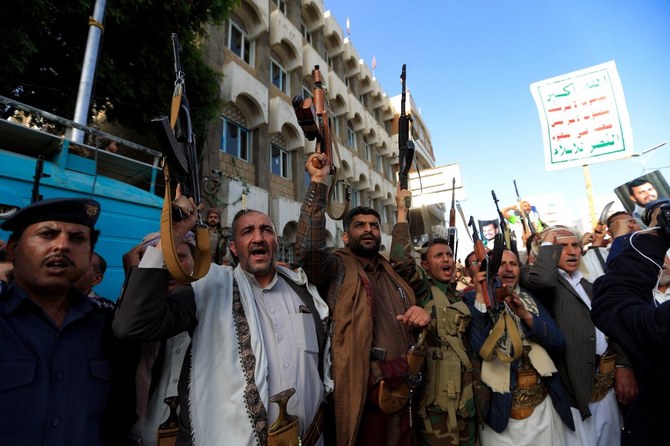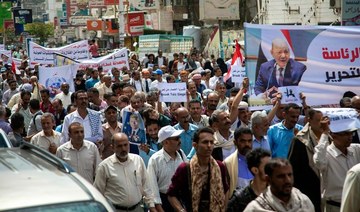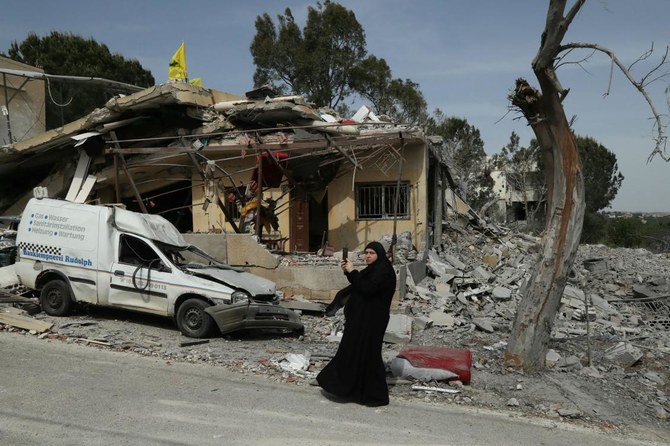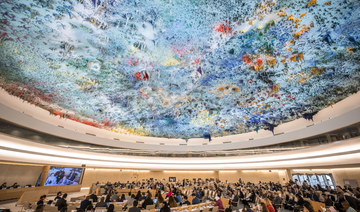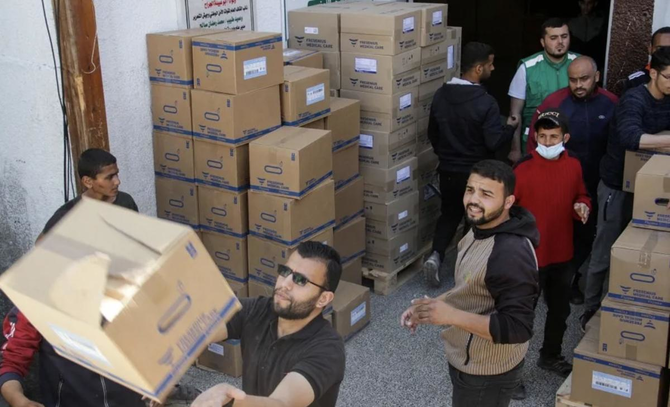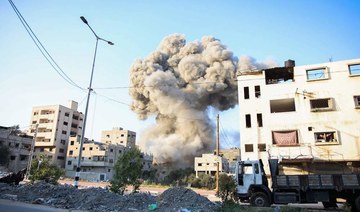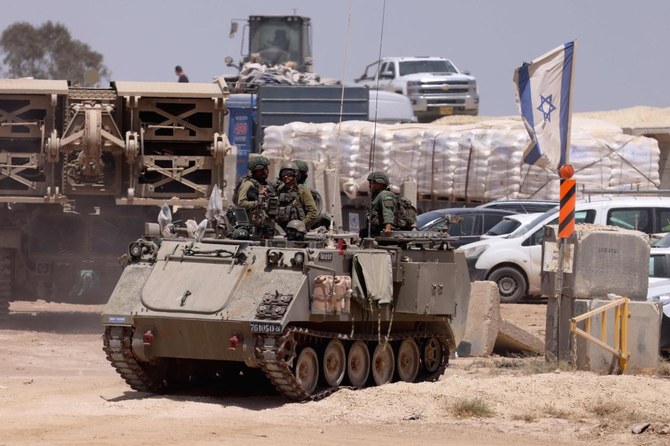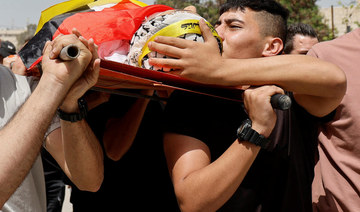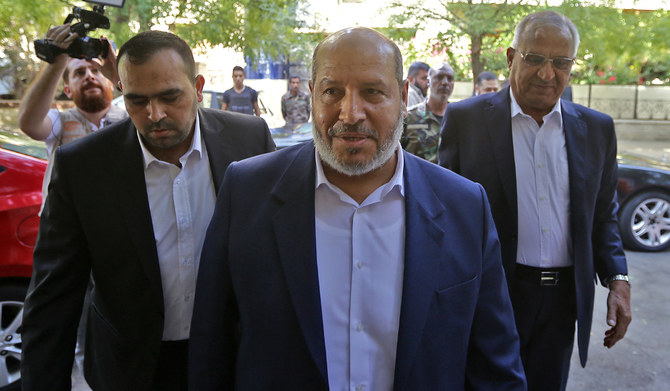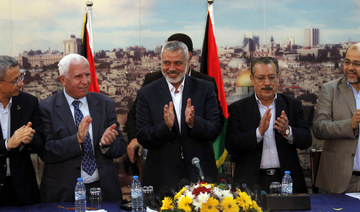CHICAGO: Tim Lenderking, the US special envoy for Yemen, described the failure to renew the truce with the Houthis, which expired on Oct. 2, as “concerning” but refused to speculate about whether Iran had played a role in preventing an extension.
Speaking during a briefing attended by Arab News on Wednesday, Lenderking said the Houthis made “last-minute” demands that meant they were “essentially backtracking from commitments they had made earlier in the process.”
Asked whether the regime in Iran, which backs the Houthis, might be responsible for this, Lenderking said: “We don’t know.” Tehran supported the UN-backed, two-month truce when it was agreed on April 2, he said, and also when it was renewed without issue on June 2 and Aug. 2.
He attributed the failure this month to agree a third extension to “maximalist and impossible demands” made by Houthi negotiators regarding the payment of salaries to their “military and security personnel.”
Until the truce is renewed, the threat of a resumption of major violence will remain, Lenderking said, and without a return to a “more positive approach,” Iran’s involvement in the process will continue to be viewed as being “quite negative.”
“It remains in our national interest to help our Gulf partners defend themselves from any external aggression and we would do so in the case of aggression coming from Yemen,” Lenderking said.
“The president and the secretary (of state) have been clear that the United States will continue to support our Gulf partners and their legitimate defense needs, in order to meet existing and emerging threats. And that includes the cross-border attacks from Yemen and elsewhere against targets inside Saudi Arabia and the UAE.
“After all, there are more than 120,000 US citizens living and working in the countries of the Gulf region. I know that the president and the secretary have no higher objective than ensuring the security of Americans wherever they live abroad.”
Lenderking reiterated that the door remains open to the resumption of peace talks, which he said would bring benefits to the Houthis and all the people of Yemen, but condemned recent threats by the militia.
“Houthi rhetoric that threatened commercial shipping and oil companies, this is completely unacceptable,” he added.
The envoy said the Biden administration had, with support in Congress, approved the “future transfer” of defensive weaponry to Saudi Arabia and the UAE, including “additional Patriot missiles to the Kingdom of Saudi Arabia and the Terminal High Altitude Area Defense system, or THAAD, to the UAE.”
He added: “These munitions have played a key role in defending both countries from cross-border UAV (unmanned aerial vehicle, or drone) and missile attacks originating from Yemen.
“Let me stress the key point here: We, and the international community, are calling for restraint from all parties. At this particularly sensitive time when there is no truce officially on the books that has been agreed and welcomed and adhered to by the parties, we must insist that there be maximum restraint exerted by all sides.”
The truce agreed in April resulted in many benefits for the people of Yemen, Lenderking said, including: A dramatic reduction of about 60 percent in civilian casualties; more than 25,000 Yemeni citizens were able to travel abroad on commercial flights for the first time since 2016; and a five-fold increase in the amount of fuel shipments passing through Hodeidah Port compared with the previous year, which helped to reduce fuel prices.
The ceasefire also allowed humanitarian organizations to operate more easily in the country.
“We are extremely concerned about the humanitarian situation in Yemen,” Lenderking said, as he warned that the needs of civilians “are great and the funding is not adequate.”
He continued: “The US has contributed $5 billion over the course of the conflict; $1 billion to humanitarian coffers this very year.”
The US will continue to designate the Houthis as a foreign terrorist organization until a final peace agreement is reached, Lenderking said.
“We are also relying on commitments that the Saudis and the Yemeni government have made to maintain the terms of the truce,” he added.
“So, indeed, let’s look at what commitments the Houthis are willing to make. Pull down the maximalist demands. Get back into the productive conversation that has taken place during the last six months on reaching an expanded truce and driving towards the durable ceasefire and the Yemeni-to-Yemeni political process that we all want to see.”
In an effort to view the latest developments in as positive a light as possible in the circumstances, Lenderking said: “We do see that key elements of the truce continue to hold and that intensive, UN-led negotiations and US diplomacy continue unabated.
“When I talk about key elements of the truce holding, let me be clear what I mean. I mean there is still relatively low levels of violence in the country. Fuel ships continue to off-load into the Hodeidah Port. There will be more continuity in civilian, commercial flights from Sanaa airport. These particular elements of the truce have been extremely effective and have delivered tangible results to the Yemeni people over the last six months.
“In our view, there is a stark choice that lies ahead: On the one hand, there is a return to war, which will bring nothing but casualties and destruction on Yemen and will bring further confusion as to where this conflict is headed.”
If a renewal of the ceasefire can be agreed, however, “there is the opportunity to not only extend but expand the truce. That is, to bring more positive elements of the truce, the likes of which would include flights, as I have mentioned. There have been ongoing and very energetic discussions with numerous countries on additional flight destinations.
“We would anticipate the processing of fuel into Hodeidah would be streamlined even further. We expect to be able to reach agreement on salary payments. This has been a core demand of both parties: To have the ability to pay Yemeni civil servants who have not been paid for many years: teachers, nurses, civil servants — to provide salaries for them.
“These are the kind of benefits that stand in the balance should the parties, particularly the Houthis, choose the path of peace. It is a very clear choice, as viewed by the international community and as viewed by the United States.”
Lenderking again stressed that “all channels remain open” for talks to extend the truce and return to negotiations to avoid an escalation in violence.



